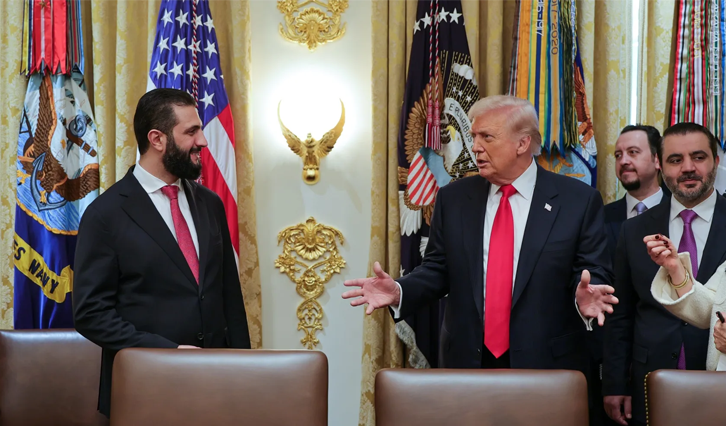Syrian President Ahmad al-Sharaa’s White House visit earlier this week was another one of President Donald Trump’s perfectly made-for-television moments. The former al-Qaida fighter entered the White House from a side door—and left with a promise for one more push to lift the layers and layers of U.S. sanctions on Syria. Inside the Oval Office, Trump asked how many wives he had and gave Syria’s interim president his own brand of perfume. Following the visit, an announcement came about Syria entering the U.S.-led coalition against the Islamic State (ISIS), with unconfirmed reports of plans for a U.S. military presence in Damascus.
Bringing Syria back into the international community after half a century of Assad dictatorship and a devastating civil war is, itself, a worthy goal—and Trump deserves credit for attempting it. Trump’s regional envoy, Tom Barrack, has built close ties with the new government in Damascus and is keen to make a security partner out of former jihadists. Al-Sharaa has shown remarkable pragmatism since his forces toppled Bashar al-Assad and could well emerge as a new American ally.
But Syria’s monumental internal and external challenges demand a steadier and intensified U.S. engagement than the president’s “victory-first, details-later” style allows. Trump’s notion of regional peace through large-scale reconstruction projects has, unsurprisingly, a certain appeal to the elites and autocracies of the Middle East—some of whom might step in to help Syria. But rehabilitating a country so politically, economically, and socially fractured cannot be achieved through optics—or construction—alone. While Syria’s economic recovery is vital, genuine stability requires U.S. commitment to governance aid, transitional justice, and institution-building.
The truth is, Syria’s post-Assad transition remains fragile: governance is weak, institutions are hollow, and millions remain displaced. Relations between Damascus and Syria’s Kurdish and Druze minorities remain undefined, with no legal framework to govern regional autonomy, resource sharing, or representation—leaving key questions of power unsettled. Without serious U.S. and European support for governance, institution-building, and economic reform, Syria risks sliding back into chaos.


